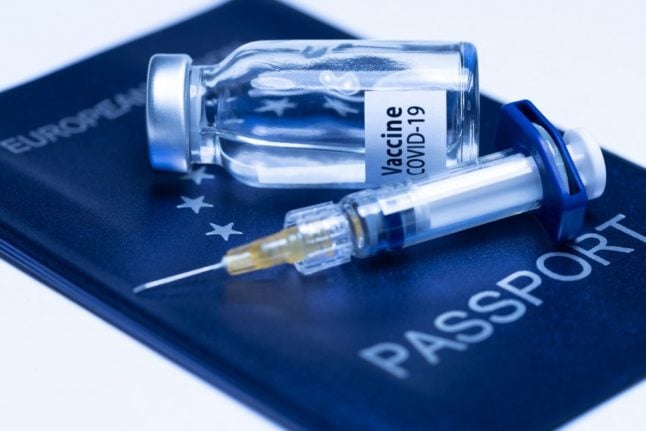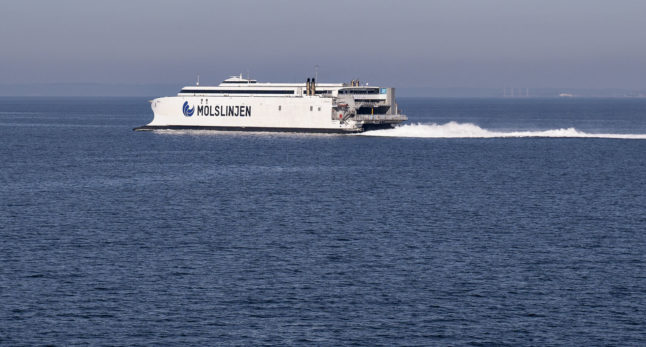But with patchy vaccine access around the world and mounting concerns over data privacy, questions are swirling about how the measures will work in practice.
EU has a plan
The European Union unveiled a plan Wednesday to set up a travel certificate to help restore freedom of movement within the bloc for citizens inoculated against the coronavirus.
“With this digital certificate we aim to help member states reinstate the freedom of movement in a safe, responsible and trusted manner,” European Commission president Ursula von der Leyen said.
It will show “whether the person has either been vaccinated, or has a recent negative test, or has recovered from Covid, and thus has antibodies.”
‘It’s not a vaccine passport’
The plan may however face stiff resistance from many members states, particularly over fears of discrimination against those still waiting for a vaccine.
According to EU commission spokesman Eric Mamer, “We don’t call it a vaccine passport we call it a green digital certificate.”
“It is a document that will describe the medical situation of the individuals who hold this certificate.”
READ ALSO: How are European countries comparing in the battle against Covid ‘third wave’?

(AFP)
There’s an app for that?
Many programmes under development are geared towards facilitating travel and come in the form of smartphone apps with varying criteria for a clean bill of health.
Vaccine passports, for example, are a popular way to tackle proof of immunity with jab rollouts under way across the globe.
There are also apps that accept positive antibody tests as proof of immunity for those who have had the virus and recovered.
But the World Health Organization has warned that there is no evidence to show that recovered Covid sufferers with antibodies are protected from a second infection.
French President Emmanuel Macron recently suggested a more localised form of Covid-free permission slip: the so-called “health pass”.
This would only be valid within France’s borders but would allow a fully vaccinated person to, for example, eat in restaurants and attend certain events.

What do certain countries think?
The idea has not been without its critics in France, who worry that it could amount to coercion in a notoriously vaccine-sceptic country – however a trial has begun on two Air France routes of a digital pass which includes options for travellers to provide either their vaccine status or a recent negative Covid test.
Austrian Chancellor Sebastian Kurz has been one of the major proponents of a vaccination certificate at EU level. Known in Austria as the ‘Green Pass’, Kurz on Wednesday promised that vaccination certificates enabling international travel will be available from April for anyone who has received both doses of the vaccine, tested negative or recovered from the virus.
The Swiss government is in favour of an Israeli-style immunity certificate which would provide access to international travel as well as domestic benefits such as visiting restaurants and attending events.
In Italy, where authorities are struggling to speed up vaccinations, the government isn’t discussing vaccine passports – probably because so few people would actually be eligible for them. But commentators have expressed concerns that the scheme would discriminate against younger, healthy people, that it could expose sensitive personal data, and that it would amount to making vaccination compulsory when the Italian health ministry insists it should be voluntary.
In Sweden, which has announced its own plans for a digital ‘vaccine pass’, the Digitalisation Minister on Wednesday said he was positive towards the EU proposals “in principle” but said he had questions about some aspects of the plan.
READ ALSO: Sweden to introduce digital ‘vaccine passport’
Where can I sign up?
China this month launched a digital health certificate for its 1.3 billion citizens that shows the holder’s vaccine status and virus test results.
Greece and Cyprus have vaccination passports specifically for travel to and from Israel, which has fully vaccinated 44 percent of its population.
Is it an official travel document?
No, and there is currently no effort under way to establish a required document to travel between countries.
The Chinese health passport is an attempt to make it easier for its citizens to travel abroad, but without recognition from other countries it is of little use.
For the moment, the applications are meant to facilitate various health checks still in place at different borders, with airlines among major proponents.
Through several of its member carriers, the International Air Transport Association has been offering a digital pass allowing passengers to easily prove their health status before boarding.
READ ALSO: France to trail ‘vaccine passports’ for flights
Can we make it official?
Making health passports stricter or requiring them for travel could invite legal challenges.
A major worry is that banning unvaccinated people from travelling would exacerbate inequality since access to jabs is far from universal.
According to the latest count by AFP, only 3.5 percent of the European population has been fully vaccinated so far.
There are also concerns over how applications would access users’ personal data.
In France, there is already an official database of citizens who have been vaccinated against Covid-19, approved by the country’s privacy watchdog.



 Please whitelist us to continue reading.
Please whitelist us to continue reading.
Member comments